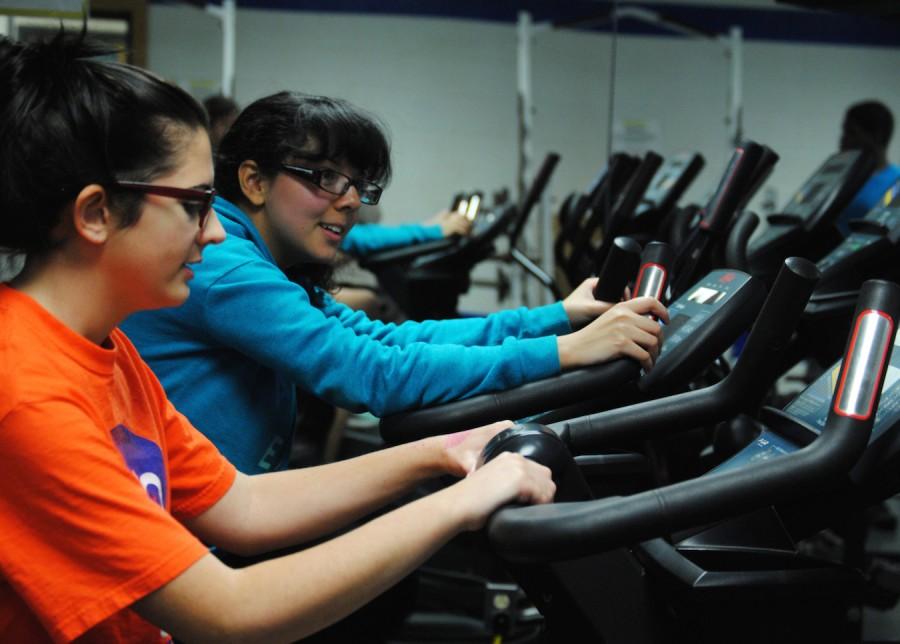Regular Exercise Decreases Stress
Students exercise in physical education class.
Most teens hit the gym or play sports in hopes of getting in shape, improving their athletic ability, or feeding their nagging competitiveness. Exercising regularly, however, also comes with many less talked about mental benefits that enhance the way people think, feel, and act.
To begin with, exercising is widely recognized as an effective stress reliever. A Stress in America survey conducted by the American Psychological Association found that a whopping 82 percent of high school students experience moderate to extreme stress during the school year. Exercise increases concentrations of norepinephrine, which subdues the brain’s otherwise intense response to stress, thus warding off negative thoughts and crippling worries.
“Exercise allows you to physically ‘work off’ your problems,” senior Peter Naktin, who participates in soccer and kung fu, said.
Research conducted by the National Institute of Mental Health found that 25 percent of high school students experience anxiety and 11.2 percent suffer from depression. On top of stress-relieving chemicals, regular exercise also stimulates the production of a group of hormones called endorphins, which create feelings of happiness. A study at Duke University found that just four months of consistent physical activity is as good as prescription medication at diminishing depression, because exercise produces neurons that mend damaged regions of the brain. Additionally, regular exercise alters the blood flow to areas in the brain that contain negative feelings and thoughts which can feed anxiety and depression.
Another benefit of exercise is higher brainpower. Research shows an active workout stimulates the production of BDNF, a protein that strengthens decision-making, logic, and learning skills. A 2011 study published in the Archives of Internal Medicine by Canadian researchers successfully proved the theory that exercise prevents memory loss and heightens cognitive functions such as vocabulary retention and concentration, also due to the increased production of cells in a brain region responsible for memory and learning.
“Exercise keeps you organized because you manage your time better,” sophomore field hockey player Madison Reese said. “I’m forced to make time for sports and all my other responsibilities, like schoolwork.”
Regular physical activity doesn’t necessarily mean signing up for after-school sports teams or spending long hours lifting weights at the gym. Even just making time for a 15-minute walk with your dog or Saturday yoga classes with friends can prove instrumental in boosting health. Everyone can find some kind of physical activity that is fun and enjoyable. Short, low-impact intervals of exercise are better than no exercise at all. Even beyond mental health, the Centers for Disease Control and Prevention (CDC) confirmed that a sedentary lifestyle increases the risks of heart disease, obesity, diabetes, and even dementia.
“It doesn’t have to be a sport. Just find something you like to do,” health and physical education teacher Mr. Brenton Ditchcreek said. “The younger the better. It’ll be harder to break those habits when you get older.”

Senior Sarah Trebicka is a four-year staff reporter and former two-year Our World editor, now serving as editor-in-chief for the Spotlight. In addition...

Caitlin Roth, a second-year staff member, has followed an unusual path towards success at the Spotlight. Her first year on staff, as a junior, Caitlin...


